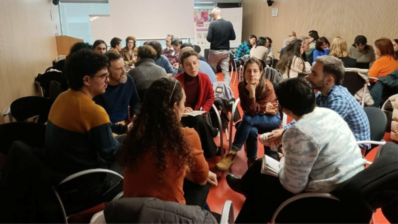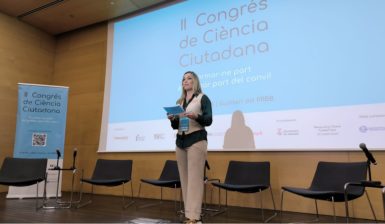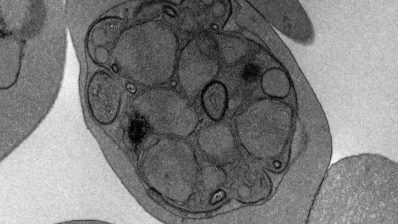The United Nations Conference on Climate Change (COP25), with more than 25,000 representatives from 200 countries, took place from 2 to 12 December in Madrid.
For countless sessions, the heads of government of nations from around the world gathered in the Blue Zone to try and reach agreements to combat the effects of climate change, closing some pending negotiations of the Paris 2015 agreement.
Meanwhile, in the green zone – a COP25 space reserved for society – the Barcelona Institute for Global Health (ISGlobal) hosted a panel discussion, which had been selected from the more than 1,500 proposals submitted to participate in this space. The event was moderated by Oriana Ramírez, Analysis Coordinator at ISGlobal, and brought together science, politics and economics to talk about the concept of planetary health, a balance between planetary and human well-being. According to the moderator, we currently live longer and better than ever; but on the other hand we are in an age of climate change, extreme temperatures, loss of biodiversity… The question then arises, have we improved our health at the expense of ecosystems, which are limited?
Healthy planet, healthy people
Josep Maria Antó, Scientific Director of ISGlobal, opened the debate by calling the climate crisis a “threat to existence” and explaining the concept of planetary health. “For the last 3 years I have tried to say this phrase every day to myself: human and planet health must go hand in hand,” said Antó. “It’s not just the climate crisis; it’s a planetary crisis, from plastic pollution to the extinction of species”. He said that scientific evidence shows that we are doing irreversible damage and that there are critical points of no return. “We have 10 years to change the pace; by 2030 we must have reduced emissions globally by 40%”, said the scientist.
“For the last 3 years I have tried to say this phrase every day to myself: human and planet health must go hand in hand”
Josep Maria Antó (ISGlobal)
And there are things that can be done. Antó, a pulmonologist, gave several examples of actions that are good for both our health and the planet, such as the eradication of smoking. “Not only is this detrimental to health (7 million deaths annually). It is also a very aggressive agricultural practice, a cause of desertification in Asia and Africa… The amount of CO2 emitted in production and consumption of tobacco corresponds to the total amount in some countries!”, he said. Another example of doubly positive action would be to create nature-based solutions for the city – reduced traffic, more green spaces… “We can’t delay anay more the implementation of that which we know works”, concluded Antó.
The same was stated by Cristina Narbona, a member of the Spanish Network for Sustainable Development and who was Secretary of State for Spain 26 years ago: “Today we cannot say anymore that we do not know what is happening; we have enough scientific knowledge and technological solutions. What is missing is the political will. It’s time to take action”.
“We have enough scientific knowledge and technological solutions. It’s time to take action”
Cristina Narbona (Spanish Network for Sustainable Development)
Andrew Haines, a professor at the London School of Hygiene and Tropical Medicine, joined the discussion via skype from England (in order not to increase his ecological footprint with extra flight), while Lela Mélon, a Marie Curie Fellow at the University Pompeu Fabra (UPF), added the social sciences and economic views.
Meanwhile, in the blue area, young Greta Thunberg was speaking to ministers in her closing address. In it, she echoed the same call to action, addressed both to rulers and society at large.
Here you can see the full video of the panel discussion.







